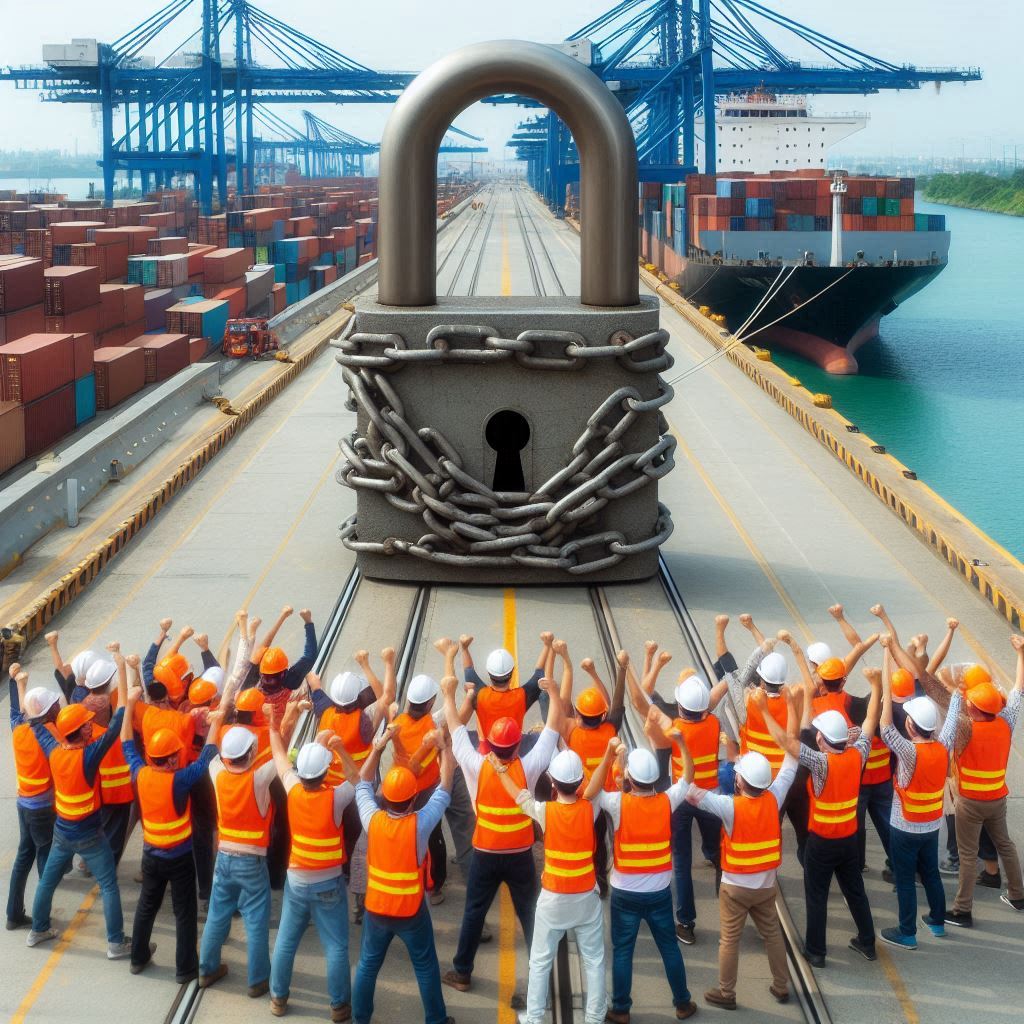
We’ve gone 4 days with British Columbian ports shut down, and there is no movement towards reopening them. In fact, multiple news outlets use the word “silence” when describing the situation and efforts to reopen the ports by the employers, union, and Canadian federal government.
As the shutdowns continue and ships pile up off the Canada’s West Coast, the odds of significant impact on U.S. supply chains increase. Canadian shippers are frustrated with the situation, especially as final imports for the Christmas and holiday season are in danger of not reaching stores in time.

In an article published in the Vancouver section of CityNews Everywhere, Chuck Chang of the Canadian Press gives a glimpse into retailers’ frustration and concern:
Matt Poirier with the Retail Council of Canada says there “doesn’t seem to be any urgency” in resolving the disputes in B.C. and Quebec and it may result in empty shelves as the holiday season approaches.
Poirier describes the situation as a “triple-threat” of labour disruptions, referencing uncertainty at Canada Post, the ongoing lockout of unionized workers at B.C. ports including Vancouver, as well as a strike that has closed two container terminals indefinitely in Montreal.
Poirier says retailers could face a “staggering” impact on the holiday season “where every delivery counts,” with four days of port disruptions potentially equating to about a month in delays due to ripples in the supply chain.
Miscalculation?
As I wrote about in Universal Cargo’s blog on Tuesday, the International Longshore & Warehouse Union (ILWU) Local 15 initiated a strike on Monday morning, which was followed by terminal lockouts orchestrated by employers at the ports that afternoon, effectively shutting down Canada’s West Coast ports.
Employers at the ports likely hoped the government would step in quickly to get the ports open and force mediated negotiations like what happened when Canadian National Railway and Canadian Pacific Kansas City, Canada’s two major railroads, were shut down in August after failed contract negotiations led to a railroad worker lockout on the day Teamsters Canada Rail Conference members were scheduled to strike.
But so far, a similar response from the government has not been seen. Employers at British Columbia ports might have been able to look across the country to get an indicator that Canada’s federal government wouldn’t immediately step in.
On the other coast, at the end of last month, the Canadian Union of Public Employees (CUPE) Local 375 went on strike and shut down two of four container terminals at the Port of Montreal. What’s happening from the federal government there? Apparently nothing.
The Canadian government has not stepped in to force negotiation and get the terminals back to operation. The Port of Montreal is imploring the government to do so, as reported by Stuart Chirls in a FreightWaves article:
“I believe that the best agreements are negotiated at the table. But let’s face it: There are no negotiations, and … the government must act by offering both sides a path to true industrial peace,” said Julie Gascon, president and chief executive of the Montreal Port Authority, in remarks at a business luncheon that were posted on the port website.
Labor action had been escalating for months in the lead-up to the strike at the Port of Montreal. The International Longshoremen’s Association (ILA), which went on strike for three days at the beginning of last month, has shown support for Canada’s striking union while their employers at U.S. East and Gulf Coast ports along with American shippers hope the ILA doesn’t go on strike again on January 15th.
With Canada’s Prime Minister, Justin Trudeau, being a member of the Liberal Party of Canada, it was more surprising when he forced arbitration between the railroads and the Teamsters, forcing the railroads back open, than it is that he hasn’t forced longshoremen back to the docks and the negotiating table. However, with all these ports closed, he may be forced to make a difficult decision soon. Especially with a third union threatening to Canada Post.
Impact Flowing Down to U.S. Ports
If Trudeau doesn’t push to get Canada’s ports open soon, things could start getting more difficult at U.S. ports.
In another FreightWaves article, Stuart Chirls includes the following about how the West Coast Canadian ports shutdown impacts U.S. supply chains and how the shutdown could impact U.S. ports if it continues:
“Any port disruptions in Vancouver would have the most significant impacts on imported goods destined for markets in the western U.S.,” said Jena Santoro, senior manager of intelligence solutions at Everstream, in comments accompanying the data. “Vancouver is a critical entry point for perishable food items like dairy, produce, and seafood, and manufactured goods like automotive components.
“Further, vessel diversions to U.S. west coast ports could cause congestion to spike and prompt cargo processing backlogs at ports like Seattle, Oakland, and even further south like Los Angeles-Long Beach. As other nearby Canadian ports are also participating [in the lockout], diversions to U.S. west coast ports are even more likely. Intermodal transport from Vancouver, namely, rail and ground freight, would also be affected as prices would likely increase amid trucker shortages and cargo delivery delays.”
Prince Rupert is an originating point for intermodal traffic moving by rail to Chicago and the U.S. Midwest.
Current data indicate that carriers are choosing to have their vessels wait at anchor instead of rerouting to U.S. West Coast ports. But no resolution to the shutdown in the coming days could see the first diversions as lines look to avoid costly delays.
Everstream said historical data shows that for every day the lockout continues, it will take three to four days to return to normal operations.
Discover more from reviewer4you.com
Subscribe to get the latest posts to your email.







